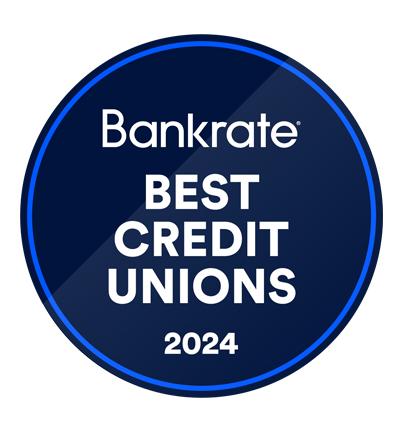Term Savings (Similar to High-Yield CDs) Earn up to 5.35% APY* on our term accounts.
Sit back, relax and watch your money grow with a Quorum Term Account. Term accounts are similar to a high-yield CD account, and are also referred to as share certificates. Your funds will earn a steady, competitive APY and you never have to worry about your rate changing during the course of your term, no matter what happens in the market.
We’ve got a variety of short-and long-term savings options designed for your goals, lifestyle and comfort level with terms ranging from 6 months to five years. Check them out below, or log in to online banking to open a term account today!

Choose one or a combination of term accounts—there’s no limit to how many you can open!
Deposits over $100,000 earn an additional 0.10% APY, so be sure to take advantage of the highest rate you can earn for the term(s) you choose.5.25%
- 7-month term savings account for NEW MONEY** Only.
- Minimum balance to open and earn 5.25% APY (5.13% APR): $1,000
- Minimum balance to open and earn 5.35% APY (5.22% APR): $100,000
5.00%
- 15-month term savings account.
- Minimum balance to open and earn 5.00% APY (4.89% APR): $1,000
- Minimum balance to open and earn 5.10% APY (4.98% APR): $100,000
3.50%
- 5-year term savings account.
- Minimum balance to open and earn 3.50% APY (3.45% APR): $1,000
- Minimum balance to open and earn 3.60% APY (3.54% APR): $100,000
3.00%
- 3-year term savings account.
- Minimum balance to open and earn 3.00% APY (2.96% APR): $1,000
- Minimum balance to open and earn 3.10% APY (3.06% APR): $100,000
4.50%
- 2-year term savings account.
- Minimum balance to open and earn 4.50% APY (4.41% APR): $1,000
- Minimum balance to open and earn 4.61% APY (4.51% APR): $100,000
2.75%
- 4-year term savings account.
- Minimum balance to open and earn 2.75% APY (2.72% APR): $1,000
- Minimum balance to open and earn 2.85% APY (2.81% APR): $100,000
More Rates! More Choices.
Check out additional Term Accounts and Quorum's HighQ Account
More Rates! More Choices!Learn What Makes Term Accounts a Good Choice for Our Members.
Quorum Online Term Accounts offer you the stability and security you deserve, along with the rates that help you achieve your financial goals. Check out the benefits:
Ready to Start Saving? Here's How:
Other Helpful Resources:

Term Accounts: What Are They and Are They Right for You?

What to Look for in Savings and Term Accounts

Bankrate Thinks We’re One of the Best.

Frequently Asked Questions
Is my money safe and sound at Quorum?
Quorum Credit Union exceeds the minimum financial standards regulators require for a credit union to be considered well-capitalized. Our net worth remains at well-capitalized levels and Quorum has consistently maintained healthy levels of capital and liquidity, even through the most challenging of economic times.
Are my funds insured with Quorum?
Your Quorum accounts are insured up to $250,000 per person by the National Credit Union Share Insurance Fund (NCUSIF). Individual Retirement Accounts (IRA) are insured separately up to $250,000. The National Credit Union Administration (NCUA), a federal agency, administers the insurance fund and regulates federally insured credit unions. The fund is backed by the full faith and credit of the U.S. Government.
Depending on how your accounts are owned and what types of accounts you have, you can potentially increase the total insurance on your funds to greater than $250,000.
The Share Insurance Estimator, found here, can help you determine whether your accounts are established and insured appropriately. If you have already utilized the Share Insurance Estimator and still have additional questions, you can also reach out to the NCUA Consumer Assistance Center at (800) 755-1030. Representatives are available from Monday through Friday from 8 a.m. – 5 p.m. ET. You can also send an email with your questions to dcamail@ncua.gov.
I have more than $250,000 in deposits at Quorum. How do I check to see if it is insured?
If you have more than $250,00 in deposits and are concerned that your savings may not be fully insured by the NCUA, you can check the Share Insurance Estimator here to understand what is insured and what portion (if any) exceeds coverage limits.
Depending on how your accounts are owned and what types of accounts you have, you can potentially increase the total insurance on your funds to greater than $250,000 through multiple account owners or trusts with beneficiaries.
MyCreditUnion.gov contains more information about the National Credit Union Share Insurance Fund coverage for consumers.
How does a savings account differ from a term account (similar to a CD)?
When comparing a term (similar to a CD) and savings accounts, it helps to understand their differences by looking at factors including:
- Accessibility of funds: With a traditional savings account, your funds are liquid, meaning you have fast and flexible access to cash, whenever you need it (it’s important to note that withdrawals are limited to six times per month, per savings account, per Federal Regulation D; click to learn more about what qualifies as a withdrawal). However, with term accounts, you invest a specific amount of cash, for a particular period ranging from a few months up to five years or more. If you withdraw these funds before the end of this maturity period, you will pay penalties up to several months’ of accumulated dividends.
- Interest rates: Financial institutions set and adjust the interest rate in savings accounts over time as the Federal Reserve funds rate rises and falls. However, term accounts allow investors to lock in a fixed rate of return for a specific period (or the term) of the account. Generally, if you have a longer term and larger investment, you can secure a higher interest rate upfront.
- Initial deposit: Most financial institutions offer savings accounts with a minimal (under $100) initial deposit (Not HighQ; there is no minimum deposit for a Quorum’s high-yield savings account, HighQ!). Term accounts, on the other hand, often require initial funding in the neighborhood of several hundred or thousands of dollars.
- Account fees: Savings accounts rarely include maintenance fees (and if they do, they’re often avoidable if you use them as designed). Similarly, account fees for term accounts are not common. (However, don’t forget that you will pay a fee, or penalty, to withdraw funds from your term account before the end of the pre-agreed upon maturity period.)
- Adding funds: Savings accounts allow you to add funds at your discretion. This feature is especially useful if you wish to set up automatic deposits into the account each month (a great way to put your savings on autopilot). Term accounts, however, rarely offer consumers the ability to add additional funds. You add the required funds upfront, and then stand on the sidelines to watch them grow until the maturity date arrives, at which point you can either cash them in or roll over your funds to a new term account.
How does a term account differ from a CD (certificate of deposit)?
Term accounts are the credit union equivalent to a bank’s Certificate of Deposit (CD). At a bank, your CD yields interest; at a credit union, you earn dividends. But they function the same way to the end user, you.
What is New Money?
“New money” savings promotions are run from time to time on term accounts or other savings products. We define new money as any new funds on deposit two weeks or less with the Credit Union. We count the two weeks from the start of when those funds become available, not the date they are deposited.
How do I fund my Term Account?
As with any other Term Savings or CD accounts, you’ll need to fund your account at the time of application. At Quorum, you’ll be asked to fund your account by transferring money from an existing Quorum savings or checking account to your new term account at the time of application. You can’t add additional funds to your term account once your account is opened. If you don’t already have the funds in one of your Quorum accounts, you can easily transfer funds from your other bank accounts into any one of your Quorum accounts. You’ll want to do this first before you open a term account.
Please note that some of our term accounts require “new money” (new funds on deposit two weeks or less with Quorum). Be sure to check the account requirements and disclosures prior to opening your term account.
What do I do when my Term Account is near maturity?
A Term Account Maturity Notice will be sent via mail or email for eStatement users 30 days prior to maturity. At maturity, you will have seven calendar days to decide whether to withdraw your Term Account, re-invest it, or let it roll over automatically for the same term, at the current dividend rate (penalties apply for early withdrawal).
If you would like to roll your Term Account to another Term Account at maturity, you can contact our Member Service Team or send us a secure message in online banking. If you do not contact the Credit Union, the Term Account will automatically roll over into a comparable term at the current offering rate. Learn more about what you can do with a mature term account.
If you wish to close the term and have a check mailed to you, you must contact our Member Service Team at (800) 874-5544, Monday through Friday, 8:30 a.m. to 7:00 p.m. ET.
How long is the grace period to roll over my term account?
Term accounts have a seven-calendar-day grace period from the maturity date.
I’m interested in opening a checking/savings account with Quorum. Do they perform a hard/soft pull credit inquiry when reviewing the application?
A hard pull or soft pull can occur when you open a new checking or savings accounts from an online banking, credit union, or financial institution. A hard pull (which typically happens when a lender checks your credit report to make a lending decision; for instance, when applying for a mortgage) can (temporarily) slightly lower your credit score, and will typically stay on your credit report for two years. A soft pull, on the other hand, is an inquiry performed by a financial institution on your credit report, but does not affect your credit score in any way.
When Quorum reviews a checking or savings account application, we may perform a soft pull on an applicant’s credit report through one of the three major credit reporting agencies (TransUnion, Experian, Equifax) for verification purposes, and also run the name through ChexSystems to see if there is a report in their system. Neither of these actions will impact an applicant’s credit score in any way.
How does Quorum determine interest rates on its savings products?
As with all depository institutions (savings and commercial banks, credit unions and loans and savings associations), the APY on a traditional savings accounts is variable and closely linked to the Federal Funds Rate set by the Federal Reserve. Rates can go up when the economy is doing well, and they can go down when the economy weakens. Quorum closely monitors Federal rates and looks for ways to remain competitive.
What are dividends?
Dividends are essentially credit-union-speak for interest. It’s the money we pay you for leaving your deposits with us.
What is compound interest?
Compound interest simply means earning interest on interest. When interest compounds daily, your interest is broken into 365 smaller payments. When it compounds monthly (Quorum compounds dividends monthly), it is paid in 12 payments. If interest is compounded daily, interest added on Tuesday will earn interest on Wednesday, and then the new amount will earn interest on Thursday—and so on. If interest is added monthly, the interest earned for a specific month will be paid once each month.
While it is true that the more often interest is compounded, the more you stand to earn, it’s important to remember that when looking at APY, you are looking at the annual yield, not the rate. That means, when you see a high-yield savings account that advertises 2.00% APY, you will have earned 2.00% on your balance by year end, whether it is compounded daily or monthly: APY is the equalizer and allows you to compare apples to apples.
What is Annual Percentage Yield (APY)?
APY is the amount of interest you earn on money you deposit into a savings accounts (including high-yield savings accounts), over the course of a year. How often interest is compounded is also figured into the APY.
If you are considering two or more bank accounts for your savings, it pays to compare the APY on each for the full picture on how much your money and account balance can earn over a year.
What is the significance of the APY? In its simplest form, the higher the APY, the more money you earn. If you have $25,000 invested in a one-year term account with a 2.86% APY, at the end of the year, you will have earned $715. With a 2.50% APY, your return would be $625.
You may see a higher annual percentage yield (APY) on accounts that have a higher minimum deposit and a longer commitment for how long you must keep the money in the savings account. Be sure to familiarize yourself with the terms and conditions of any bank account you open.
What is an Online Credit Union?
While banks (including online banks) are public, profit-driven companies designed to make money for shareholders, online credit unions are not-for-profit, cooperative financial institutions operated by members and based entirely on the web.
In an online credit union like Quorum, profits are returned to members in the form of low fees for financial products and services. A shared sense of community provides members with peace of mind and a connection to something larger than themselves, as well as loyalty and service to other members.
Online credit unions are carefully regulated and are a safe place to store your money. Just like the Federal Deposit Insurance Corporation (FDIC) insures banks, the National Credit Union Administration (NCUA) insures credit unions.
